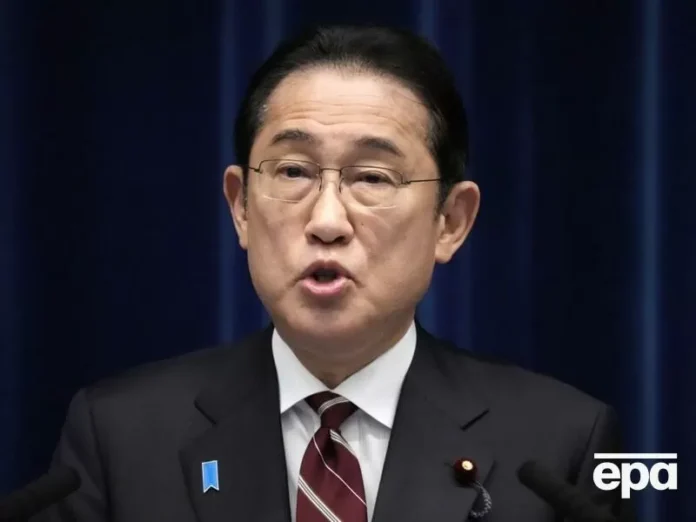The world is currently experiencing a period of heightened geopolitical tension, which has resulted in what Japanese Prime Minister Fumio Kishida referred to as a «historic turning point». In an interview with CNN published on April 7th, Kishida revealed that these tensions have forced Japan to reevaluate and change its defense strategy. This shift in approach could have significant implications for Japan and its relationships with neighboring countries.
Kishida acknowledged that the global landscape has changed significantly in recent years, with the rise of new global powers and increasing competition for resources and influence. This has led to a surge in regional tensions and conflicts, particularly in the Asia-Pacific region. As a country that heavily relies on international trade and resources, Japan cannot afford to ignore these developments.
Given this changing landscape, Kishida stated that it was necessary for Japan to adapt its defense strategy to better address the current geopolitical realities. This includes shifting from a solely defensive approach to a more proactive one, with a focus on strengthening Japan’s defense capabilities and partnerships with like-minded nations.
One of the key changes in Japan’s defense strategy is the reinterpretation of its «peace clause» in the constitution. This clause, which has been in place since the end of World War II, essentially renounces war as a means of settling disputes and prohibits Japan from maintaining military forces or engaging in conflict. However, under the new interpretation, Japan can now exercise the right to collective self-defense, allowing it to defend its allies in the event of an attack.
This reinterpretation has sparked concerns and criticisms from neighboring countries, particularly China and South Korea, who see it as a potential threat to their security. However, Kishida stressed that the changes are purely defensive in nature and are not aimed at any specific country. He also emphasized that Japan would continue to uphold its commitment to maintaining peace and stability in the region.
Kishida also highlighted the importance of Japan’s alliance with the United States in maintaining regional security. He stated that the alliance remains the cornerstone of Japan’s defense strategy and that the two countries are working closely together to address the changing dynamics in the Asia-Pacific region.
In addition to strengthening its alliances, Japan is also increasing its defense budget and capabilities. The country plans to spend a record 5.34 trillion yen (approximately $49.1 billion) on defense in the fiscal year 2021. This includes investments in new technologies and equipment, such as stealth fighters and Aegis-equipped destroyers.
The changes in Japan’s defense strategy have been met with mixed reactions. While some view it as a necessary step to adapt to the changing global landscape, others see it as a move towards militarization and a potential threat to regional peace. However, Kishida stressed that Japan’s ultimate goal is to contribute to international peace and stability, and the changes in its defense strategy are in line with this objective.
In conclusion, the geopolitical tensions in the world have led to a significant shift in Japan’s defense strategy. The country, under the leadership of Prime Minister Fumio Kishida, is adapting to the changing realities and taking proactive measures to ensure its national security. The changes have sparked concerns and criticisms, but Japan remains committed to upholding its principles of peace and stability in the region. As the world continues to evolve, it is crucial for countries to adapt and strengthen their defense capabilities to ensure the safety of their citizens and maintain regional stability.

